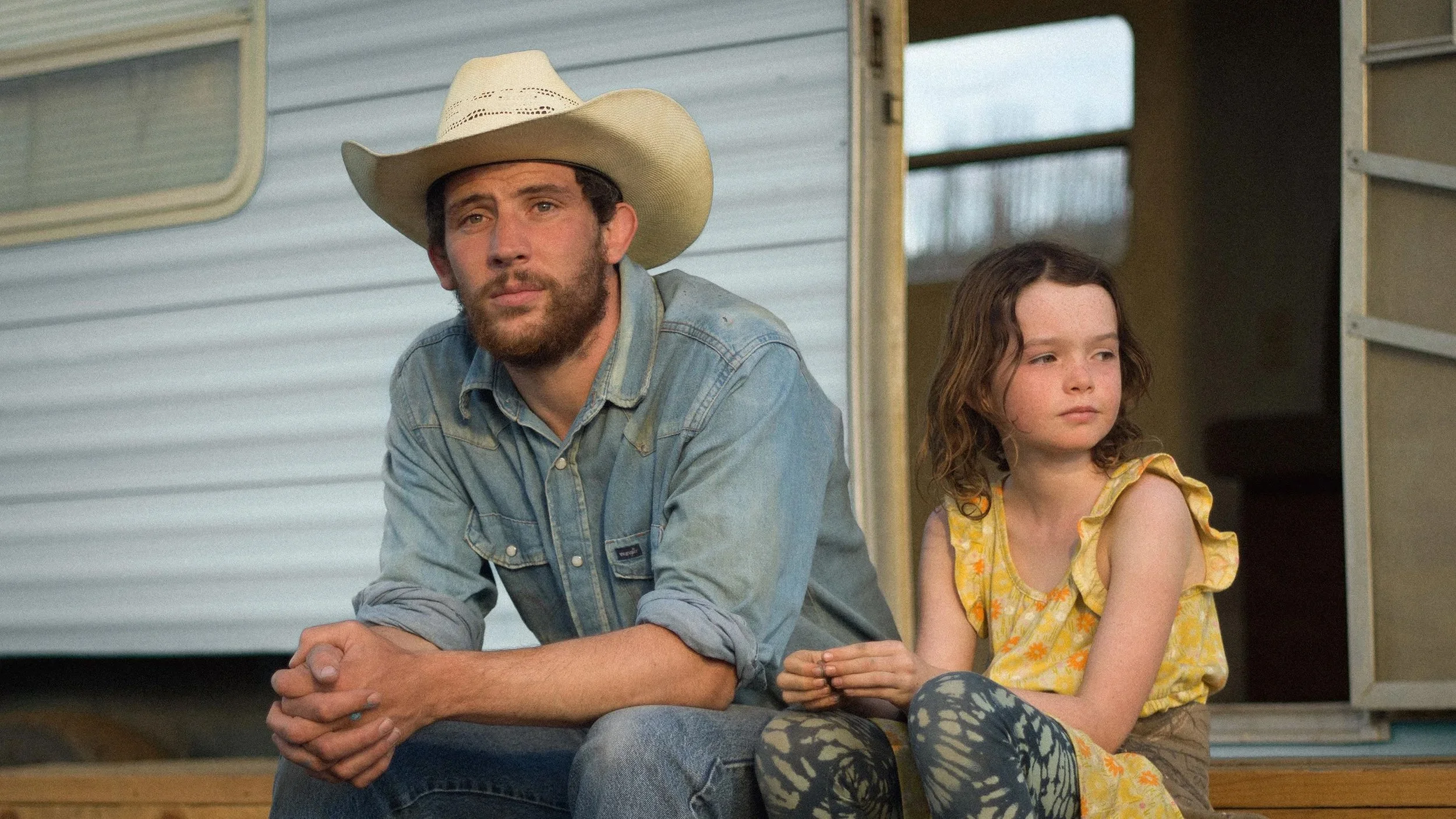“Rebuilding” Finds Gentle Humanity in the Face of Loss
In 2022, writer/director Max Walker-Silverman’s feature directorial debut, A Love Song, premiered at Sundance. The film was about two childhood friends (lovingly portrayed by Dale Dickey and Wes Studi) reconnecting after many years apart. It was a gentle story about human connection set in the stunning backdrop of the American West. This theme of gentleness in the face of the harshness of the landscape is something Walker-Silverman explores once again in his sophomore feature, Rebuilding. Also premiering at Sundance, Rebuilding looks at a cowboy whose way of life has been threatened.
A massive fire rips through a small town in Colorado. We never see the flames, nor are we placed in the middle of the catastrophe as it’s happening. Rebuilding opens with a black screen and the sounds of crackling embers before introducing the audience to the aftermath. The barren trees, the demolished homes, and the even emptier-than-before expanse of land that a cowboy named Dusty (Josh O’Connor) calls home. Or, more accurately, called home. After couch surfing and sleeping in his truck, he finds himself in a trailer at a FEMA camp. Before the fire, Dusty had 200 acres with livestock to care for. Now, not only has he lost his home and livelihood, but he’s lost a fundamental piece of himself. What is a cowboy without his ranch and his animals? Dusty finds the answer in his relationship with his new, also-displaced neighbors, his daughter (Lily LaTorre), and his ex-wife (Meghann Fahy).
courtesy of Bleecker Street
The Western and the image of a cowboy revel in the solitary. Something about the nature of the job and nature itself pushes people to believe they can manage on their own. It’s a point of pride for Dusty that he’s self-sufficient. He doesn’t know how to ask for help, but he’s now in a place where support is what he desperately needs. Dusty is not the archetypical cowboy whose sense of masculinity is tied to an underlying anger or belief that he must enforce a rigid moral code. You get the sense that he’is self-reliant because he takes genuine pride in his work and enjoys the repetitive nature of tending to a plot of land. He’s a gentle, yet stoic, man, a character Walker-Silverman writes exceptionally well and who is fully in O’Connor’s wheelhouse. The look on Dusty’s face when he has the chance to pick his daughter up from school is transcendent. This is a man who has lost everything and struggles to allow connections to form between himself and other people. We should all have a healthy dose of independence, but know when it’s time to lean on one another.
Courtesy of Bleecker Street
Much like Train Dreams, another Sundance-premiering film from this year, Rebuilding is about a man whose way of life no longer matches up with reality. Train Dreams takes this to a more extreme level as it’s set at the turn of the century, but Rebuilding sees Dusty coming up against technology in ways he isn’t prepared for. This is an analog man living in a digital world that is passing him by. When his house burned down, he lost so many items, including photos. Dusty is not a man who has scanned these family pictures into a computer and uploaded them to the cloud, but he is someone who finds deep value in preserving a simpler way of life. These tangible reminders of people who are no longer with us are essential to Dusty because they ground him. It’s easy for him to go it alone. As much as Rebuilding is about the reconstruction of his life after the fire, the film is about Dusty taking the pieces of himself that are already within him and shifting them around like a kaleidoscope to reflect new images. So that now he can take his loyalty and independence and use them to create community rather than run from it.
“Funny, the things you pack and the things you leave,” Dusty says as he reflects with his new neighbors about what he misses from the home he lost. He mentions that there are so many things he doesn’t even remember anymore to miss their absence. The things he does remember (the layout of the home, the color blue his mother picked for the barn), don’t have to feel like a weight pulling him down into a pit of grief. Instead, Rebuilding argues that these memories can be a foundation on which to build a future. That just because we lose the tangible doesn’t mean we’ve lost the role it played in our lives. As Dusty’s ex-wife says, “you got what you got.” Rebuilding finds beauty and connection amid the barrenness of devastation, proving that humans still have everything to give and to gain when they’ve lost it all.
support your local film critic!
~
support your local film critic! ~
Beyond the Cinerama Dome is run by one perpetually tired film critic
and her anxious emotional support chihuahua named Frankie.
Your kind donation means Frankie doesn’t need to get a job…yet.
Follow me on BlueSky, Instagram, Letterboxd, YouTube, & Facebook. Check out Movies with My Dad, a new podcast recorded on the car ride home from the movies.



